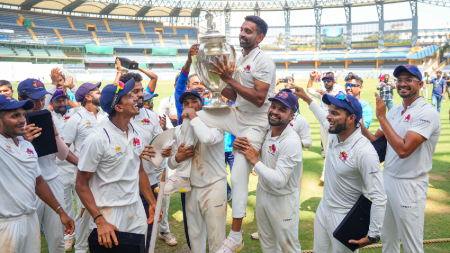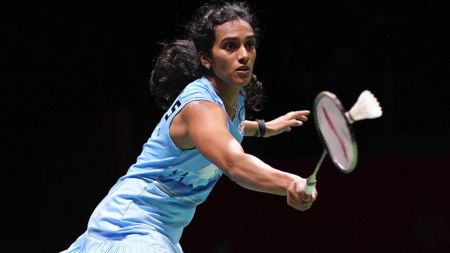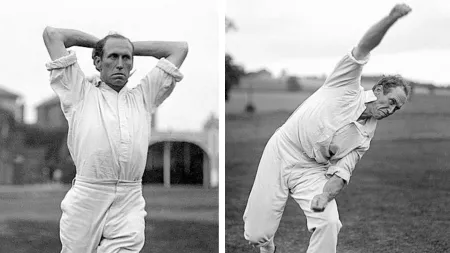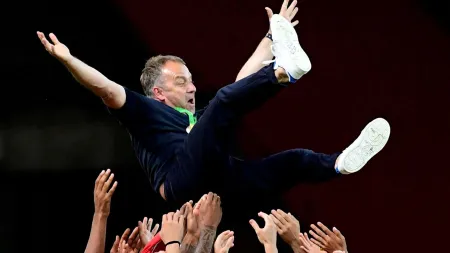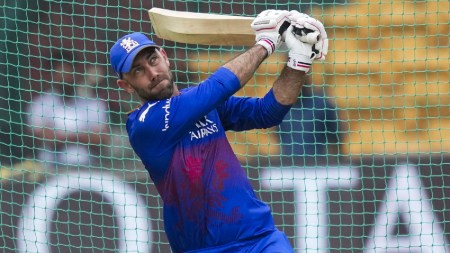T20 World Cup: Pakistan’s Mohammad Amir, once tipped to be better than Wasim Akram, now making another comeback at 32
Asif Bajwa remembers the chilling November evening in 2011 when he heard those fateful words: his ward, Mohammad Amir was going to jail.
“Ghar mein matam ka mahol ho gaya tha (We were in a state of mourning),” Bajwa recalls to The Indian Express over a phone call from Rawalpindi.

Pakistan cricket’s golden boy had crossed the sacrosanct line – at the home of cricket, no less – and was now facing the repercussions. But despite the three months in prison and a five-year ban from the sport, which many in Pakistan wished to last a lifetime, Amir’s coach and mentor since childhood wasn’t hesitant in proclaiming, “He will be back.”
13 years have passed, eight since Amir made ‘the comeback’, and four since he announced retirement from international cricket, and after all that’s unfolded, what’s surprised Bajwa even more is that the left-arm fast bowler will once again don the Pakistan green at the 2024 T20 World Cup.
“Them asking him to return from his retirement in 2024 is more shocking for us. It feels like they haven’t prepared well. You don’t have the bowlers. Jabhi inko naubat aayi na (It’s why the situation has come to this)…why else would they call him?” Bajwa rips into Pakistan cricket’s decision makers.
His recollection of the events over the past decade-and-a-half offer an insight into perhaps the most Pakistanesque fast bowling career. A pacer who was destined to overtake Wasim Akram, as prophesied by Imran Khan and Akram himself. A pacer who almost single-handedly scripted two of Pakistan’s greatest wins of the 21st century — the T20 World Cup in 2009 and the Champions Trophy triumph over India in 2017.
And yet, as is so often the way in the land of the unquiet ones, the highest of highs were matched by the lowest of lows. Amir’s was a career that could’ve ended prematurely many times. And in 2020, when he called it quits, it had felt he had hung up his boots for good. Only to be followed by a new chapter, another comeback, at a World Cup, of all stages.
What is it about one of the most talked-about bowlers of the three-format era that has made him endure this long, and why?
The critics
“I have done penance for that big mistake.”
Earlier this month during a press conference after his return to the national side, Amir pleaded in front of the cameras that it was time to bury the spot-fixing saga.
But back in 2012 when he first returned home after serving his sentence in an English prison, Amir’s involvement in cricket corruption was the only thing anyone would talk about.
 Amir had almost single-handedly scripted two of Pakistan’s greatest wins of the 21st century — the T20 World Cup in 2009 and the Champions Trophy triumph over India in 2017. (File)
Amir had almost single-handedly scripted two of Pakistan’s greatest wins of the 21st century — the T20 World Cup in 2009 and the Champions Trophy triumph over India in 2017. (File)
“I messed up,” the 20-year-old had said in his first interview to former England captain Michael Atherton on Sky Sports after being released from the Dorset prison.
And despite the-then PCB chief Zaka Ashraf’s assurance that Amir would be welcomed back into the national side once he served his ban, there were a number of voices raised against the same.
Amir’s ‘sir’ however, wasn’t going to let him hear any.
“Hum aapko inn cheezo se nikal sakte hai (We can pull you out of this),” Bajwa would tell him. “We had already started looking at the future.”
The coach-cum-mentor was quick in initiating the comeback protocol for his ward. With PCB facilities out of bounds for Amir, Bajwa would take him to off-sites for bowling and fielding training. Without professional cricket, Amir’s financial situation had taken a dent. To make it easier on the pocket, Bajwa would call a friend in Lahore to allow the fast bowler to use his gym.
The efforts behind the scenes from Bajwa paid off as the PCB agreed to reinstate Amir back into the national team as his ban came close to an end. But the knives were out, almost immediately.
The message was clear: Amir wasn’t welcome in the dressing room anymore.
ODI captain Azhar Ali tendered his resignation, refusing to join the team camp if Amir joined. As did all-rounder Mohammad Hafeez.
“The best thing about Amir during that phase was that he didn’t keep any gile-shikwe (didn’t cry foul),” Bajwa remarks.
Former Pakistan captain Ramiz Raja, who, coincidentally, was in the commentary box during the infamous Lord’s Test in 2010, was another strong voice against Amir’s inclusion. “If I had powers to decide on the matter, I would have never let him play again,” Raja said. His opinions about Amir wouldn’t change when he finally took over as the PCB chief between 2021 and 2022, and seemed to have gotten even acrid in 2024 with the former PCB chief stating recently, “If my son had done such a thing, I would’ve disowned him.”
Back in 2016, though, Pakistan cricket needed Amir and welcomed him with open arms. A move made out of desperation by the selectors, per Bajwa. One which eventually led to Amir’s premature retirement in 2020.
The comeback
 Amir being forced to retire early hardened him as an individual. The boy, who Bajwa praised for keeping to himself while the world called him corrupt, would change for good. (Photo: Asif Bajwa)
Amir being forced to retire early hardened him as an individual. The boy, who Bajwa praised for keeping to himself while the world called him corrupt, would change for good. (Photo: Asif Bajwa)
“Please don’t use me this way. Kuch khaas khaas matches mai khilaye (Only play me in selective games).”
It was a conversation Amir had had with the-then Pakistan coach Mickey Arthur, reveals Bajwa. As a pacer, who had missed out on five years of international cricket in his early 20s, it wasn’t a conversation he’d expected to have, but needed to.
In 2016, Amir’s year of return to international cricket, no Pakistan pacer played more games across formats than him. His tally of 502 overs were only behind Josh
Hazlewood’s 575 and Trent Boult’s 504.
“See this happens when you haven’t prepared well,” Bajwa says. “When you don’t have a complete bowling attack, you put the workload on one individual. What is the job of the other bowlers then? Amir had to suffer because of it. He was asking the management not to put this much load on his body. Against England there were four Tests, he had asked them to rest him for the third. They played him in all four.”
The conversations between the player and the management reached the zenith in 2019. “He had informed them that he wanted to play only white-ball cricket. ‘I can’t carry my body for red ball as well.’ But the management was adamant. They formed an opinion of him. ‘How can he talk to us like this?’ ‘If you don’t play red ball, then you won’t be able to play limited overs as well.’ He was forced to retire.”
It was an ugly break-up, one that hardened Amir as an individual. The boy, who Bajwa praised for keeping to himself while the world called him corrupt, would change for good.
Change in attitude
“If you want to play for Pakistan, you have to play alongside Babar only. Will you be able to look him in the eye?”
Last year, while speaking on Pakistan TV, Shahid Afridi revealed the text messages he had sent Amir, scolding him over his demeanor against the national team skipper. The said incident took place during a Pakistan Super League match. On the back of being tonked for a splendid cover drive, Amir had thrown the ball in Babar’s direction off a defensive shot that followed.
“Focus on your performance, control your aggression, and go back home peacefully,” was the advice offered by the former Pakistan captain.
 Mohammad Amir in action during a Pakistan Super League (PSL) season. (PHOTO: Mohammad Amir via X)
Mohammad Amir in action during a Pakistan Super League (PSL) season. (PHOTO: Mohammad Amir via X)
Amir had a slightly different version when ARY News spoke to him, and didn’t hold back from letting his side of the story known.
“(Afridi) only praised my bowling and enquired about my injury. But the things like ‘how will you face Babar’… this wasn’t in his texts at all. What harm have I caused Babar? Or vice-versa? I found it very weird. I guess he speaks a little quickly so he might have mistakenly said that.”
Calling spade-a-spade wasn’t always a part of Amir’s persona, however, Bajwa believes. It’s something he’s picked from his experiences over the years. “This change in him has happened over the years. He doesn’t take rubbish from anyone. If someone tries to poke him, he always responds.”
As for the aggression on field, Amir’s coach is confident that his ward isn’t the first or the last Pakistan pacer to materialize it for the good. Is it wrong then for a former Pakistan captain, who led Amir and is well versed with the pace culture in the country, to criticize him for being aggressive?
“They should understand these things. Shoaib Akhtar’s attitude was a part of him. This is what man-management is all about. This is part of a coach’s job. Coach ka kaam sirf bat seedha karna sikhana nahi hai. (The coach’s job is not just about telling you how to hold the bat). You have to accept a player with his habits and persona. Your work is around his performance. You need results, not a deep dive into his personal life.”
Bajwa’s comments also come on the back of the murmurs that began once it was confirmed that Amir would return from retirement for the T20 World Cup this year.
Working as a TV pundit during the ODI World Cup last year, the pacer had criticised the team, including skipper Babar’s tactics. Now that Amir’s sharing the dressing room with Babar and Co, is it bound to get awkward?
 Working as a TV pundit during the ODI World Cup last year, the pacer had criticised the team, including skipper Babar Azam’s tactics.. (FILE)
Working as a TV pundit during the ODI World Cup last year, the pacer had criticised the team, including skipper Babar Azam’s tactics.. (FILE)
“See, these things aren’t wrong. But in our country, we perceive them in the wrong manner. This shouldn’t happen. If someone is speaking the truth, no matter how harsh it is, we don’t take it in a positive stride,” Bajwa says.
“He has spoken about your cricket, not discussed your personality. The problems arise when you become personal. Don’t think this should lead to dressing room tensions. Humare yaha ye hai ki aapne baat kaise ki hmare baare mai, ab aapko kabar tak nhi chhodenge,” he adds.
Another World Cup dream
“We’ve missed out on things. Pakistan ka bahot nuksaan hua hai (It has hurt Pakistan too).”
Bajwa rues the nine-years his ward has missed out on.
Going into the T20 World Cup, questions have been raised about Amir’s inclusion given his dry run in domestic cricket. To which he recently responded, “I ask them what is Pakistan’s premier domestic T20 event? The PSL. And both of us (Imad) have played and performed in the PSL besides appearing regularly in other leagues. So what is wrong with selecting us for the T20 format?”
In PSL over the past two seasons, Amir has 19 scalps from 16 outings. Since his inclusion in Pakistan’s T20I team this year, the left-armer has notched five wickets from six games.
Top Sports News Now- T20 World Cup: Who was the first and greatest home-grown American cricket legend?
- Shah Rukh Khan promised that he would celebrate the IPL win with a 'flying kiss': Harshit Rana
- Norway Chess: Hikaru Nakamura shows he’s the king of confessional room; Vaishali rises to top of standings
With the troika of Shaheen Shah Afridi, Naseem Shah and Haris Rauf – the ones who starred in Pakistan’s run to the final at the last T20 World Cup – back in the team, can the 32-year-old play a part in the upcoming campaign? Bajwa shares what Amir told him when he returned to the national side after a four-year gap.
“Ab hum aaye hai, ek kaam karke jaenge bas, Pakistan ko kisi bhi tarah se World Cup jita ke dena hai. (Now that I have made a comeback, I have just one aim, to win the World Cup for Pakistan. No matter what it takes).”
Get latest updates on IPL 2024 from IPL Points Table to Teams, Schedule, Most Runs and Most Wickets along with live score updates for all matches. Also get Sports news and more cricket updates.
Disclaimer: The copyright of this article belongs to the original author. Reposting this article is solely for the purpose of information dissemination and does not constitute any investment advice. If there is any infringement, please contact us immediately. We will make corrections or deletions as necessary. Thank you.
